Respiratory syncytial virus (RSV) can cause a variety of respiratory illnesses in infants and young children. It most commonly causes a cold-like illness but may cause lower respiratory infections like bronchiolitis and pneumonia.
We discussed how to prepare for rising RSV cases in Issue 33 of the Provider Digest and followed up with some details on palivizumab. Now we are providing an update on nirsevimab (Beyfortus).
Nirsevimab (Beyfortus) is a long-acting monoclonal antibody that prevents severe disease from respiratory syncytial virus (RSV) in infants. The Advisory Committee on Immunization Practices (ACIP) recommends Beyfortus (nirsevimab) for two different age groups:
Infants less than 8 months
- All infants less than 8 months born during or entering their first RSV season should receive one dose of nirsevimab (50mg for infants <5kg or 100mg for infants >5kg). Infants born during the RSV season should get one dose of nirsevimab as soon as possible after birth.
- Infants younger than 8 months of age born in the months outside of the RSV season should get immunized in October or November.
Infants and toddlers 8-19 months
Infants and toddlers 8-19 months who are at increased risk of severe RSV disease and entering their second RSV season should receive a 200 mg dose of nirsevimab.
Vaccine for Children program (VFC)
Beyfortus is now available for providers enrolled in the VFC program. See the California Department of Public Health (CDPH) letter “Nirsevimab (Beyfortus) Now Available from VFC for Prevention of Severe RSV Disease in Young Children.”
CDPH welcomes providers serving children who are Medi-Cal eligible, American Indian/Alaskan Native, uninsured and underinsured to enroll in the California VFC Program. CDPH is encouraging birthing hospitals, acute care hospitals and others providing care to neonatal patients to join the VFC Program. For more information, please refer to CDPH Letter “Nirsevimab (Beyfortus™) available at no cost to protect eligible infants from returning to hospital with RSV infection – VFC enrollment is open.”
| Recommendations for use of nirsevimab (Beyfortus) | |
| Infants younger than 8 months of age who were born shortly before or are entering their first RSV season if:
☐ The mother didn’t receive RSV vaccine during pregnancy. ☐ The mother’s RSV vaccination status is unknown. ☐ The infant was born within 14 days of maternal RSV vaccination. ☐ Except for special situations and populations listed below, nirsevimab is not needed for infants younger than 8 months old born 14 or more days after maternal RSV vaccination.
|
Children 8 through 19 months old at increased risk for severe RSV disease shortly before or during their second RSV season:
☐ Children with chronic lung disease of prematurity who required medical support (chronic corticosteroid therapy, diuretic therapy or supplemental oxygen) any time during the 6-month period before the start of the second RSV season. ☐ Children who are severely immunocompromised. ☐ Children with cystic fibrosis who have either:
☐ American Indian and Alaska Native children. Children ages 8 months and older who are not at increased risk of severe RSV disease should not receive nirsevimab. |
| Dosing |
| Administer nirsevimab intramuscularly. The preferred site of administration is the anterolateral thigh. Do not administer nirsevimab intravenously, intradermally or subcutaneously.
For infants less than 8 months of age, dosing is based on weight: • 50 mg for infants weighing <5 kg (<11 lb.). • 100 mg for infants weighing ≥5 kg (≥11 lb.). For high-risk children 8-19 months: • 200 mg: two 100 mg injections at the same time at different injection sites. |
Ordering
For VFC providers, please refer to CDPH Letter “Nirsevimab (Beyfortus) Now Available from VFC for Prevention of Severe RSV Disease in Young Children” for more details.
Alliance authorization and billing for Beyfortus billed as a medical claim
For providers who wish to bill the Alliance as a medical claim using a HCPCS code or “buy and bill,” please submit a prior authorization request via the Alliance Provider Portal or by fax to 831-430-5851.
Billing for administration of VFC-supplied vaccine doses
To bill the Alliance for administration of VFC-supplied vaccine doses, use the appropriate
CPT-4 code followed by the “-SL” modifier. Providers will only be reimbursed for the administration fee when using VFC vaccines for members.
- Beyfortus 50 mg/0.5 mL syringe (NDC: 49281-0575-15) CPT Code: 90380-SL
- Beyfortus 100 mg/1 mL syringe (NDC: 49281-0574-15) CPT Code: 90381-SL
Medi-Cal Rx authorization for Synagis billed as a pharmacy claim
Prescriptions that are filled at a pharmacy are covered by Medi-Cal Rx instead of the Alliance. For more information on billing and prior authorization requests, please refer to the Medi-Cal Rx website.
Thank you for caring for young, at-risk infants. If you have any questions about Beyfortus recommendations, please call the Alliance Pharmacy Department at 831-430-5507.


